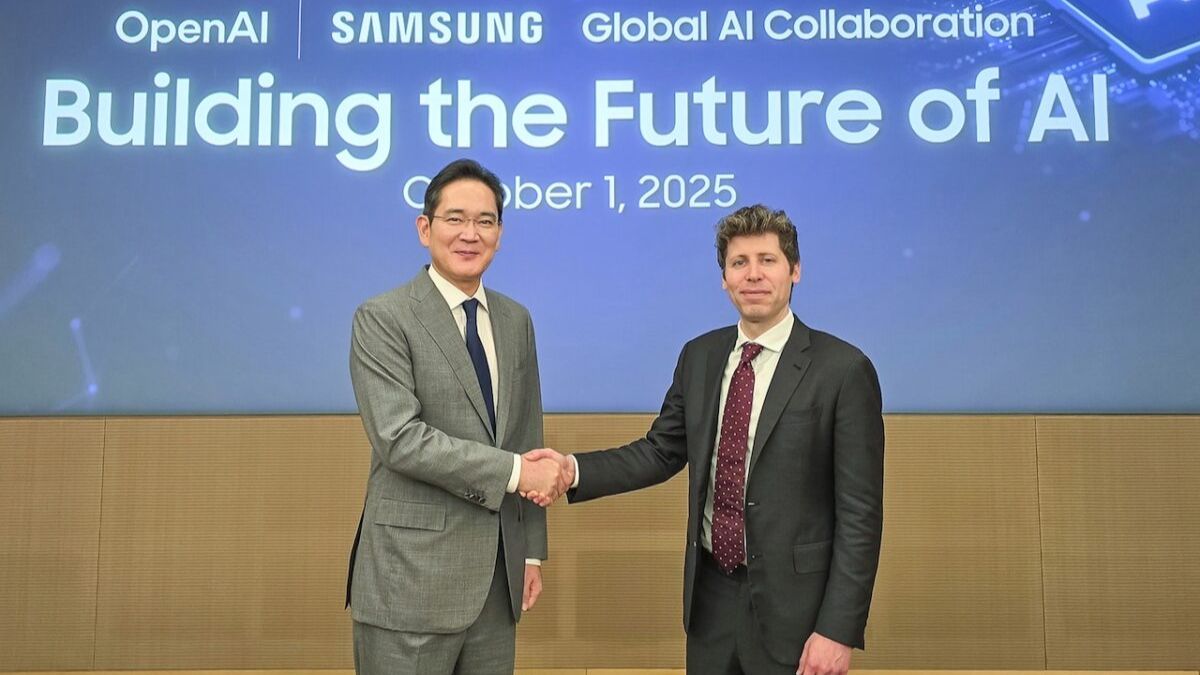Necessary Always Active
Necessary cookies are required to enable the basic features of this site, such as providing secure log-in or adjusting your consent preferences. These cookies do not store any personally identifiable data.
|
||||||
|
||||||
|
||||||
|

In Focus
Chipmakers Samsung Electronics and SK Hynix are set to supply memory chips for OpenAI’s Stargate Project. According to Reuters, the two companies signed letters of intent relating to the data center chip supply on October 1, 2025.
News about memory chip supply emerged shortly after OpenAI CEO Sam Altman held a meeting with South Korean President Lee Jae Myung along with the chairmen of SK Hynix and Samsung Electronics in Seoul.
South Korea’s presidential office says OpenAI’s chip demand is expected to reach 900,000 wafers per month. OpenAI is expected to source most of its high-performance memory chips from Samsung and SK Hynix. However, timelines for the chip supply have not been decided yet.
President Donald Trump announced the $500 billion data center investment in January 2025 to enable the U.S. to stay ahead of rival countries like China in the global AI race. Expanding chip availability remains central to the success of OpenAI’s Stargate Project.
In September 2025, Oracle and SoftBank joined OpenAI in building five new data centers, with Oracle announcing $300 billion in Stargate project funding. The Stargate project is expected to create in excess of 100,000 jobs in the U.S.
Related Post – Intel Secures 5 Billion Stake Purchase from Nvidia
Samsung Electronics and its affiliates, Samsung SDS, Samsung Heavy Industries, and Samsung C&T. Samsung Heavy Industries and Samsung C&T to develop floating data centers.
These are offshore facilities that reduce carbon emissions and cooling costs. This aspect is still in the research and development stage, but the project will include floating control centers and power general systems.
SK Hynix will supply high bandwidth memory chips to OpenAI. The chipmaker’s mobile business SK Telecom, will support the development of a data center in South Korea’s southwest region.
Samsung affiliates will
Collectively, Samsung and SK Hynix control about 70% of the global Dynamic Random Access Memory (DRAM) chip market and about 80% of the HBM market. HBM is a form of DRAM standard that was first manufactured in 2013. It involves stacking chips vertically to reduce energy consumption and save space.
The technology helps in processing huge volumes of data generated by highly complex AI applications. DRAM is mostly used in servers, workstations, and personal computers to store program code and data.
OpenAI’s Chip Supply Partnership at a Glance
SK Hynix is a major HBM supplier for AI chip maker NVIDIA. Last month, the chip maker announced HBM4 production. SK Hynix said it had finalized the internal quality assurance and certification process for its next-generation high-bandwidth memory chips, HBM4 2-layer chip and shipped samples to customers.
South Korea views the partnership with OpenAI as an early advantage in the largest AI infrastructure project in the world. It also presents a unique growth opportunity for the country’s local chip industry.
OpenAI established an office in Seoul in September 2025 as demand for ChatGPT in the country surged. According to the AI startup, South Korea has the second highest number of paying ChatGPT users after the U.S.